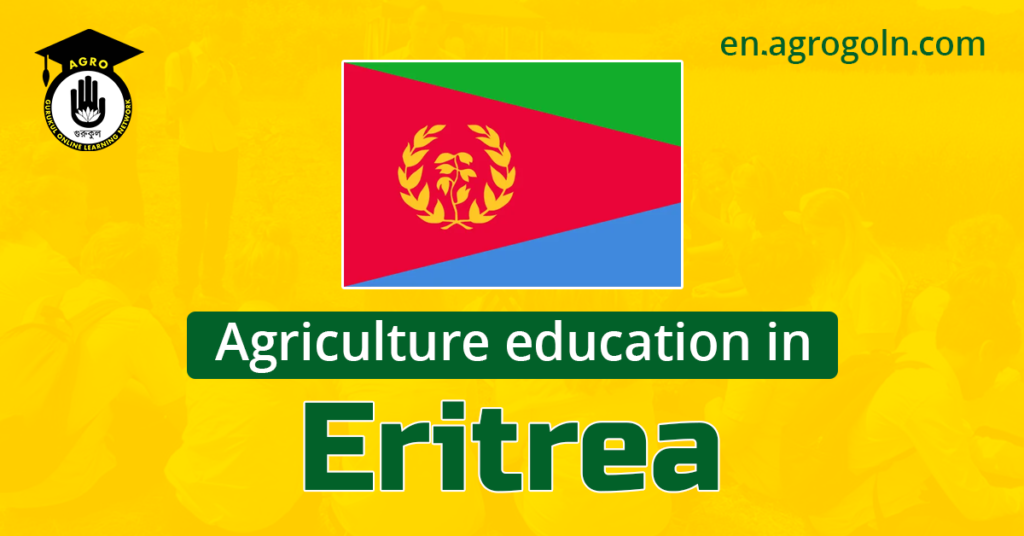Agricultural Education in Eritrea. Eritrea, a small country located in the Horn of Africa, has an economy that largely depends on agriculture. With over 80% of the population relying on farming for their livelihood, agriculture plays a pivotal role in the nation’s socio-economic and food security landscape. Given this importance, agricultural education becomes a vital area of focus. This article delves into the historical, present, and potential future contexts of agricultural education in Eritrea.
Agricultural Education in Eritrea
Historical Background
Eritrea’s agricultural history has been influenced by its colonization by the Italians (from 1889 to 1941) and subsequent Ethiopian rule. During the Italian colonial era, there was a systematic introduction of modern farming techniques, and by extension, formal agricultural education. This initiative aimed to transform Eritrea into the “breadbasket” of the Italian colonies. This background, combined with the indigenous knowledge of the various ethnic groups in Eritrea, established a complex tapestry of agricultural practices and know-how.
The Current State of Agricultural Education
- Formal Education: Agricultural education in Eritrea today is both formal and informal. On the formal front, Eritrea’s higher institutions, like the Eritrea Institute of Technology and Hamelmalo Agricultural College, provide degree and diploma courses in agriculture and related fields. The curriculum often encompasses both theoretical and practical components, ensuring students are prepared to address the country’s unique agricultural challenges.
- Informal Education: Informal agricultural education is equally, if not more, essential. This often takes place in the form of traditional knowledge passed down through generations, farmer-to-farmer trainings, and workshops or seminars organized by NGOs and international organizations. These platforms ensure that farmers who might not have had the opportunity for formal education still acquire vital skills.
- Challenges: Eritrea faces several challenges in agricultural education. Limited resources, outdated teaching methods, and a lack of exposure to global best practices are some of them. Moreover, the emphasis on theoretical knowledge in formal settings sometimes disconnects education from the practical realities farmers face.
Role of International Organizations and NGOs
Various international organizations, like the United Nations and FAO (Food and Agriculture Organization), and NGOs have been instrumental in enhancing Eritrea’s agricultural education. They have aided in:
- Capacity Building: Organizing training sessions for educators and offering scholarships for students to study agriculture in foreign institutions.
- Knowledge Exchange: Introducing innovative agricultural practices from other parts of the world, thus ensuring that Eritrean farmers are not left behind.
- Infrastructure Development: Funding the establishment of labs, research facilities, and demonstration farms, which are crucial for a hands-on learning experience.
Importance of Incorporating Indigenous Knowledge
Eritrea is a nation rich in diversity, with nine ethnic groups, each possessing unique agricultural techniques perfected over generations. Integrating these practices into formal agricultural education can offer several benefits:
- Relevance: Indigenous practices are often tailor-made for the specific ecological and socio-cultural contexts of different regions in Eritrea.
- Sustainability: Many traditional agricultural practices are environmentally sustainable, as they have evolved over time in harmony with the local ecology.
- Preservation of Heritage: By integrating indigenous knowledge, Eritrea can preserve its rich agricultural heritage and ensure it’s passed down to future generations.
The Way Forward
- Research and Innovation: Eritrea needs to invest in agricultural research. Setting up dedicated research institutions and facilitating collaboration with international agricultural research bodies can drive innovation in farming.
- Modernization and Technology: Introducing modern tools, techniques, and technologies can boost productivity and mitigate challenges such as unpredictable rainfall, pests, and diseases.
- Farmer Empowerment: Grassroot movements that empower farmers to take charge of their education, such as setting up farmer field schools, can be instrumental.
- Policy Reforms: A supportive policy environment, which prioritizes agricultural education and provides incentives for young people to take up farming, can herald a new era for Eritrean agriculture.
Conclusion
Agricultural education in Eritrea, given the country’s reliance on farming, is of paramount importance. While there have been significant strides in this area, there’s still a lot of ground to cover. A balanced approach that incorporates both modern scientific knowledge and the rich indigenous practices can ensure that Eritrea’s agricultural sector remains resilient and sustainable in the years to come.
See more:

